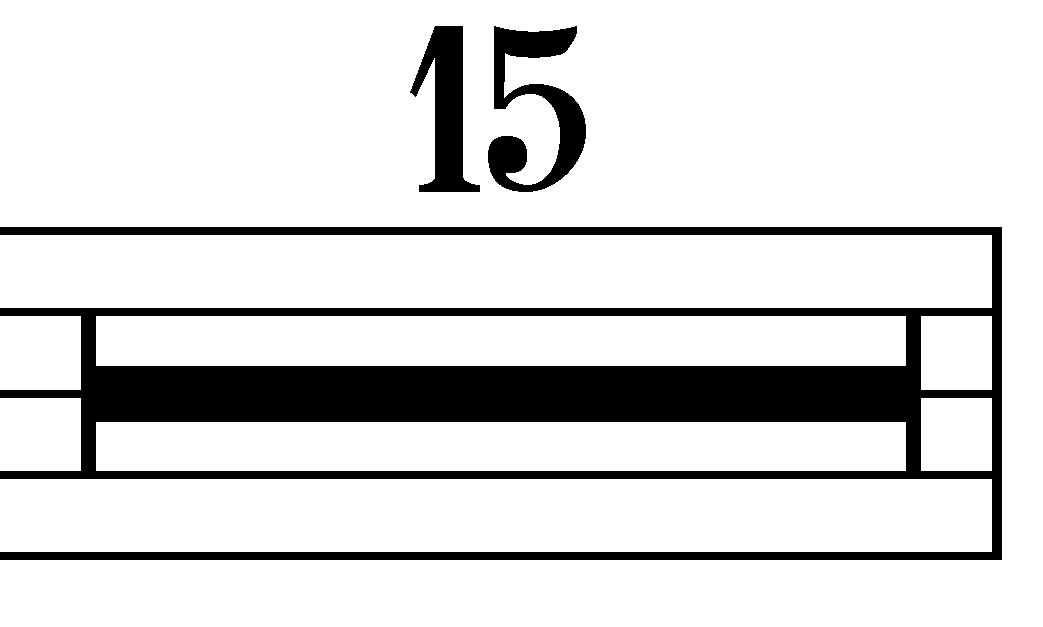|
Am Grabe, WAB 2
' (At the grave), WAB 2, is an elegy composed by Anton Bruckner in 1861, for men's voices a capella. History ''Am Grabe'' is a revised ''a cappella'' setting of the elegy '' Vor Arneths Grab'', WAB 53. The elegy was performed on the funeral of Josephine Hafferl on 11 February 1861. The original manuscript is stored in the archive of the Liedertafel ''Frohsinn''.C. van Zwol, p. 723 The song, which was edited first by Wöß, Universal Edition, in 1924, is put in Band XXIII/2, No. 13 of the '. In addition, an autograph slight revision of the song has been found on an undated copy of the manuscript (Mus.Hs. 2104). Music The 21-bar-long, a cappella setting discarded the fourth strophe of Marinelli's text. The voice score of the first two strophes (bars 1-8) is almost identical to that of ''Vor Arneths Grab''. The score of the third strophe is 5 bars longer. From bar 15 the score is different and ends at bars 19-21 alike bars 26-28 of the original setting. A score with anothe ... [...More Info...] [...Related Items...] OR: [Wikipedia] [Google] [Baidu] |
Anton Bruckner
Josef Anton Bruckner (; 4 September 182411 October 1896) was an Austrian composer, organist, and music theorist best known for his symphonies, masses, Te Deum and motets. The first are considered emblematic of the final stage of Austro-German Romanticism because of their rich harmonic language, strongly polyphonic character, and considerable length. Bruckner's compositions helped to define contemporary musical radicalism, owing to their dissonances, unprepared modulations, and roving harmonies. Unlike other musical radicals such as Richard Wagner and Hugo Wolf, Bruckner showed extreme humility before other musicians, Wagner in particular. This apparent dichotomy between Bruckner the man and Bruckner the composer hampers efforts to describe his life in a way that gives a straightforward context for his music. Hans von Bülow described him as "half genius, half simpleton". Bruckner was critical of his own work and often reworked his compositions. There are several version ... [...More Info...] [...Related Items...] OR: [Wikipedia] [Google] [Baidu] |
Elegy
An elegy is a poem of serious reflection, and in English literature usually a lament for the dead. However, according to ''The Oxford Handbook of the Elegy'', "for all of its pervasiveness ... the 'elegy' remains remarkably ill defined: sometimes used as a catch-all to denominate texts of a somber or pessimistic tone, sometimes as a marker for textual monumentalizing, and sometimes strictly as a sign of a lament for the dead". History The Greek term ἐλεγείᾱ (''elegeíā''; from , , ‘lament’) originally referred to any verse written in elegiac couplets and covering a wide range of subject matter (death, love, war). The term also included epitaphs, sad and mournful songs, and commemorative verses. The Latin elegy of ancient Roman literature was most often erotic or mythological in nature. Because of its structural potential for rhetorical effects, the elegiac couplet was also used by both Greek and Roman poets for witty, humorous, and satirical subject matter. Oth ... [...More Info...] [...Related Items...] OR: [Wikipedia] [Google] [Baidu] |
RTVE
The Corporación de Radio y Televisión Española, S.A. (; ), known as Radiotelevisión Española or RTVE, is the state-owned public corporation that assumed in 2007 the indirect management of the Spanish public radio and television service known as Ente Público Radiotelevisión Española. It provides multi-station television ( TVE) and radio services ( RNE), as well as online and streaming services. Since the entry into force of the ''Ley de Financiación de RTVE'' in 2009, RTVE is primarily funded by a combination of subsidies from the General State Budget and a fee levied on the private agents' gross revenue (3.0 % for private free-to-air channels, a 1.5 % for private subscription channels and a 0.9 % for telecom companies). RTVE is a full member of the European Broadcasting Union (EBU). The corporation's central headquarters are located in Pozuelo de Alarcón. History Precedents Spanish state-wide public broadcasting services have undergone numerous restructurings and r ... [...More Info...] [...Related Items...] OR: [Wikipedia] [Google] [Baidu] |
August Göllerich
August Göllerich (2 July 185916 March 1923) was an Austrian pianist, conductor, music educator and music writer. He studied the piano with Franz Liszt, who made him also his secretary and companion on concert tours. Göllerich is known for studying the life and work of Anton Bruckner whose secretary and friend he was. He initiated and conducted concerts of Bruckner's music in Linz, and wrote an influential biography. Life Born in Linz, the son of the Wels town secretary and later member of the Reich Council and State Parliament and his wife Maria, née Nowotny, Göllerich grew up in middle-class circumstances. His father was a member of a liberal writers and literary association in Wels. Göllerich attended the Linz Realschule, which he completed with the Matura. He studied mathematics at the University of Vienna, as his father wished. In 1882, he attended the Bayreuth Festival. After his father's death in 1883, he devoted himself entirely to music, studying in Vienna the pia ... [...More Info...] [...Related Items...] OR: [Wikipedia] [Google] [Baidu] |
Schott Music
Schott Music () is one of the oldest German music publishers. It is also one of the largest music publishing houses in Europe, and is the second oldest music publisher after Breitkopf & Härtel. The company headquarters of Schott Music were founded by Bernhard Schott in Mainz in 1770. Schott Music is one of the world's leading music publishers. It represents many important composers of the 20th and 21st centuries, and its publishing catalogue contains some 31,000 titles on sale and over 10,000 titles on hire. The repertoire ranges from complete editions, stage and concert works to general educational literature, fine sheet music editions and multimedia products. In addition to the publishing houses of Panton, Ars-Viva, Ernst Eulenburg, Fürstner, Cranz, Atlantis Musikbuch and Hohner-Verlag, the Schott group also includes two recording labels, Wergo (for new music) and Intuition (for Jazz), as well as eight specialist magazines. The Schott Music group also includes the printing ... [...More Info...] [...Related Items...] OR: [Wikipedia] [Google] [Baidu] |
Gottfried Grote
Gottfried Grote (15 May 1903 – July 1976) was a German church musician. Born in Oberfrohna, Grote was from 1926 to 1935 organist and choir director of the Bach-Verein (Bach association) in Wuppertal, which later was named ''Wupperfelder Kantorei'' (Wupperfeld chorale). From 1935 he was director of the Spandauer Kirchenmusikschule (Spandau school of church music. Grote also became a professor at the Berlin Conservatory. From 1955 he was the conductor of the ''Staats- und Domchor Berlin'' (State and cathedral choir Berlin). He is best known as editor of the collection of hymns ''Das Geistliche Chorlied'' (The sacred choral song), nicknamed after him "Der Grote". Grote was a particular admirer of Heinrich Schütz. He arranged in Wupperfeld the third festival ''Heinrich-Schütz-Fest''. He died in Berlin. Pupils of Gottfried Grote have included Ewald Dorfmüller and Erhard Egidi Erhard Egidi (23 April 1929 – 8 September 2014) was a German cantor, organist and composer of sacred m ... [...More Info...] [...Related Items...] OR: [Wikipedia] [Google] [Baidu] |
Bar (music)
In musical notation, a bar (or measure) is a segment of time corresponding to a specific number of beats in which each beat is represented by a particular note value and the boundaries of the bar are indicated by vertical bar lines. Dividing music into bars provides regular reference points to pinpoint locations within a musical composition. It also makes written music easier to follow, since each bar of staff symbols can be read and played as a batch. Typically, a piece consists of several bars of the same length, and in modern musical notation the number of beats in each bar is specified at the beginning of the score by the time signature. In simple time, (such as ), the top figure indicates the number of beats per bar, while the bottom number indicates the note value of the beat (the beat has a quarter note value in the example). The word ''bar'' is more common in British English, and the word ''measure'' is more common in American English, although musicians generally u ... [...More Info...] [...Related Items...] OR: [Wikipedia] [Google] [Baidu] |
Universal Edition
Universal Edition (UE) is a classical music publishing firm. Founded in 1901 in Vienna, they originally intended to provide the core classical works and educational works to the Austrian market (which had until then been dominated by Leipzig-based publishers). The firm soon expanded to become one of the most important publishers of modern music. History In 1904, UE acquired Aibl publishers, and so acquired the rights to works by Richard Strauss, Max Reger, and other composers, but it was the arrival of Emil Hertzka as managing director in 1907 (who remained until his death in 1932) which really pushed the firm towards new music. Under Hertzka, UE signed contracts with a number of important contemporary composers, including Béla Bartók and Frederick Delius in 1908; Gustav Mahler and Arnold Schoenberg in 1909 (Mahler's '' Symphony No. 8'' was the first work UE acquired an original copyright to); Anton Webern and Alexander von Zemlinsky in 1910; Karol Szymanowski in 1912; Leoš J ... [...More Info...] [...Related Items...] OR: [Wikipedia] [Google] [Baidu] |
Josef V , a Japanese manufacturer of musical instruments
{{disambiguation ...
Josef may refer to *Josef (given name) *Josef (surname) * ''Josef'' (film), a 2011 Croatian war film *Musik Josef Musik Josef is a Japanese manufacturer of musical instruments. It was founded by Yukio Nakamura, and is the only company in Japan specializing in producing oboe The oboe ( ) is a type of double reed woodwind instrument. Oboes are usually ma ... [...More Info...] [...Related Items...] OR: [Wikipedia] [Google] [Baidu] |
Vor Arneths Grab, WAB 53
' (Facing Arneth's tomb), WAB 53, is an elegy composed by Anton Bruckner in 1854, for men's voices and three trombones. History Bruckner composed the elegy ''Vor Arneths Grab'', WAB 53, for the funeral of Michael Arneth, the prior of the St. Florian Abbey. The work, which was written together with the Libera me, WAB 22, was performed on 28 March 1854 at the cemetery of the abbey.C. van Zwol, p. 722 The elegy was performed a second time for the funeral of Magistrate Wilhelm Schiedermayr on 23 September 1855. The original manuscript of the elegy is stored in the archive of Wels. The work, which was first published in band II/2, pp. 184–188 of the Göllerich/Auer biography, is put in Band XXIII/2, No. 9 of the '. ''Am Grabe'' is a revised a cappella setting of the elegy, was performed on the funeral of Josephine Hafferl. Text The elegy uses a text by Ernst von Marinelli. : Music The 28-bar-long work in F minor is scored for choir and 3 trombones. The setting o ... [...More Info...] [...Related Items...] OR: [Wikipedia] [Google] [Baidu] |
Werkverzeichnis Anton Bruckners
Anton Bruckner is best known for his symphonic works; there are 11 symphonies (the last with an unfinished finale), most of them in several versions. He also composed a few other smaller orchestral works (one overture, one march and three 'small orchestral pieces'), and sketched another symphony. Bruckner also composed a considerable amount of choral music. There are 59 religious works, of which there are 17 larger choral works (seven masses, two requiems, one religious cantata, five psalm settings, one ''Te Deum'' hymn and one ''Magnificat'' hymn), 40 smaller choral works (16 hymns, six antiphons, six graduals, three settings of the offertorium, two chorale, two religious elegies, two '' Libera me'', one litany and two other motets), of which a few are in two or three versions, and two '' aequali'' for three trombones. In addition, Bruckner made sketches for two other masses and another requiem. Bruckner also composed 44 ''Weltliche Chorwerke'' (secular choral works), seven ... [...More Info...] [...Related Items...] OR: [Wikipedia] [Google] [Baidu] |





